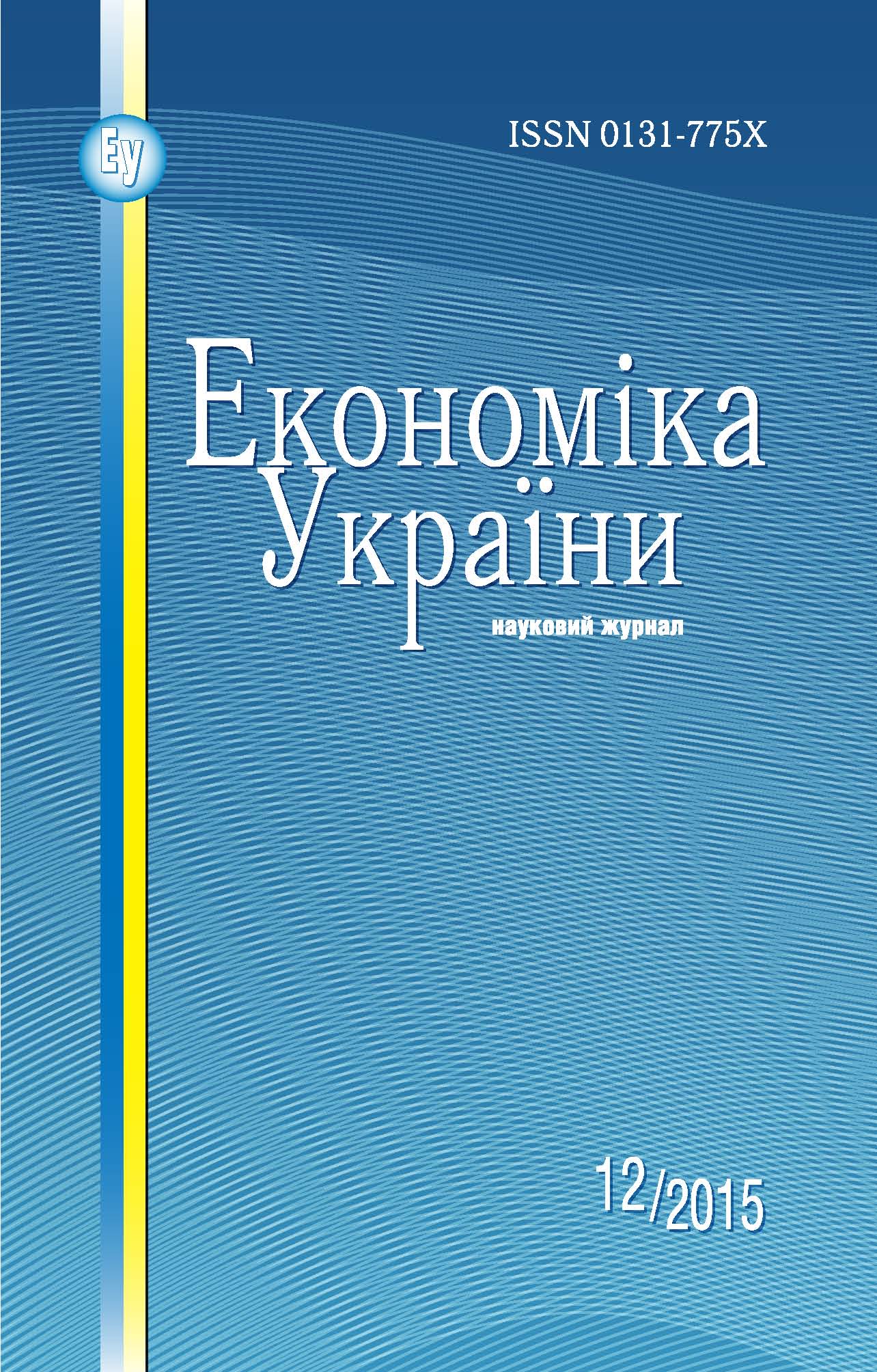PROBLEMS OF FINANCING AND TAXATION IN THE WASTE RECOVERY FIELD IN UKRAINE AND IN THE WORLD
Keywords:
waste recovery methods, environmental taxes, financing of the recovery, experience of the recovery in developed countries, environmental lossesAbstract
The processes of production and consumption lead to the formation of residues that are not suitable for the subsequent usage. The solutions of the problem of their accumulation and recovery are different in different countries of the world and depend mostly on the economic level of a country. The world experience indicates that, due to the sharpening the ecological problems and the deterioration of a state of the environment, all countries with developed economy become to create and to support the centralized administrative systems of control over the protection of the environment.
The economic aspect of this question is related to that the population should pay for the reprocessing of wastes.
In the whole world, the main method of financing of the recovery of wastes is the tax paid by the population. In addition, there exists a tax paid by the producers. It is established mostly in the developed countries, where the system of sorting of a refuse and the recycling are in use, and the ecological legislation is fulfilled.
One of the most promising ways to finance the waste recovery is the creation of conditions for its profitability. Thus, the state transfers the problem of accumulation and recovery onto private companies. Under the conditions of competition with the use of high technologies, the companies transform the waste recovery into a profitable business, by solving the problem of a deficit in raw materials in some spheres.
In the developing countries, the financing from the state budget is mostly used. The assets for the recovery are mostly taken from the local budget of a settlement. The payment for the recovery is included in the total payment for the public utilities and is converted to Ukraine’s state budget by a tax agent, whose main function is the redistribution of finances, including those for the refuse recovery. In Ukraine, there exists another means to finance the recovery without participation of housing communal facilities: by means of the establishment of private communal services that are busy independently by the waste recovery or collaborate with carriers. Under the honest competition and the conscientious work of such enterprises, the efficiency of a recovery can be improved. As for the methods of financing, the optimum way for Ukraine would be the creation of conditions for the profitability of enterprises dealt with the reprocessing and the recovery of wastes. This would minimize the number of agents in the financial flows and would favor the targeted usage of assets, because the state is only a controlling body, and the tax on the recovery is transferred onto the accounts of enterprises that utilize directly a refuse and develop this branch. However, in order to realize this, it is necessary to form the environmental legislation, to ensure the necessary conditions for the business, and to minimize risks.
References
Skrypnyk A.V., Mikhno I.S. Optymizatsiya utylizatsii vidkhodiv v Ukraini [Optimization of the waste recovery in Ukraine]. Visn. Skhidnoyevr. Univ. Ekon. i Menedzh. – Bull. East-Europ. Univ. Econ. Manag., 2014, No. 2 (17), pp. 14–25 [in Ukrainian].
O proektakh “Rimskogo kluba,” Preprint Komiteta po sistemnomu analizu pri Prezidiume AN SSSR [On Projects of the “Rome Club,” preprint of the Comm. on Syst. Anal. at the Presidium of the AS of the USSR]. Moscow, AUISS, 1977 [in Russian].
Kuznets S. Economic Growth of Nations: Total Output and Production Structure. Cambridge, Belknap Press of Harvard Univ. Press, 1971.
Boulding K. The economics of the coming spaceship Earth, in: Environmental Quality in a Growing Economy, edited by H. Jarrett. Baltimore, J. Hopkins Univ., 1966, pp. 3–14.
Tchobanoglous G., Theisen H., Vigil S. Integrated Solid Waste Management: Engineering Principles and Management Issues. New York, McGraw-Hill, 1993.
Lin’kova O.Yu., Shapovalov I.I. Mekhanizm pidvyshchennya konkurentospromozhnosti pidpryemstv po utylizatsii promyslovykh vidkhodiv [A mechanism of enhancement of the competitiveness of enterprises on the industrial waste recovery]. Visnyk NTU “KhPI”. Seriya : Akt. Probl. Rozv. Ukr. Susp. – Bull. NTU “KhPI”. Ser. : Act. Probl. Devel. Ukr. Soc., 2013, No. 69 (1042), pp. 122–125 [in Ukrainian].
Trofimov I.L. Otsinka vplyvu vidkhodiv pobutovogo pokhodzhennya na ekologichnyi stan Ukrainy [Evaluation of the influence of everyday-origin wastes on Ukraine’s ecological state]. Vostochno-Evrop. Zh. Pered. Tekhn. – East-Europ. J. of High-Tech., 2014, Vol. 2, No. 10 (68), pp. 25–29 [in Ukrainian].
Gorobets’ O.V. Napryamy udoskonalennya upravlinnya povodzhennyam z vidkhodamy v Ukraini, v: Ekonomika. Upravlinnya. Innovatsii [Directions of improvement of the waste management control in Ukraine, in: Economy. Management. Innovations], available at: file:///C:/Users/1/Downloads/eui_2013_1_16.pdf [in Ukrainian].
Stengler E. Confederation of European Waste-to-Energy Plants, available at: www.sintef.no/globalassets/project/ngbw_conf/presentations/04_stengler_cewep.pdf.
The Organisation for Economic Co-operation and Development (OECD), available at: www.oecd.org/about/.
Tarchyns’kyi V. Chy vygidnyi smittevyi biznes u Kyevi [Is the waste business profitable in Kyiv?], available at: blogs.lb.ua/volodymyr_tarchynskiy/294377_chi_vigidniy_smittieviy_biznes_kiievi.html [in Ukrainian].
Downloads
Published
How to Cite
Issue
Section
License
Copyright (c) 2024 Economy of Ukraine

This work is licensed under a Creative Commons Attribution-NonCommercial-NoDerivatives 4.0 International License.



